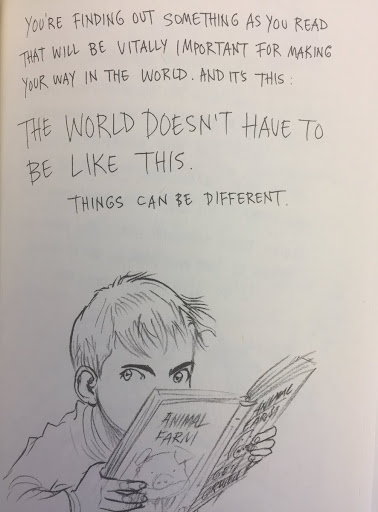In a note on my Evernote app, titled Inspiration File, a list of random words and phrases might seem confusing to a stranger’s eye, but for me, they represent five years’ worth of curating the most intriguing pieces of writing I’ve come across.
In both the fiction and non-fiction I read, I pay attention to any sentences or even verbs that cause me to crane my attention and think, “Hmm. Haven’t used/thought of that one in a bit.”
I contend that every writer, no matter the vertical, should have an Inspiration File on their phone or notepad. We can’t rely on our memory to pull up that moving phrase we want to tweak with our voice; at least I don’t claim to have an impeccable memory, so that’s where my iPhone’s Evernote comes in.
I’ve long had my phone nearby when I’m reading a book or article (which isn’t going to help you ignore texts and notifications, so adjust your settings when appropriate). When a certain phrase strikes me oh so splendidly, I head to my Inspiration File to input le mot juste before I can forget it, and I might even add a parenthetical note to it, such as “Use to describe next restaurant I profile,” or “Potential poem ending.”
These standout words and sentences don’t have to be groundbreaking metaphors; they might something as simple as the verb “amplify” which I’m using more often in some copywriting for tech clients. It’s a chewy word when used appropriately, and it’s more succinct than, say, “make more prevalent.”
My file contains phrases such as, “She noticed how manicured her life had become,” thanks to the unique adjective “manicured” peppering that sentence. I also remember swiftly writing down a Harlan Ellison line that struck me as potently apt when I read it: “She looked at me like a house that’s been on the market too long.”
When it comes to exact metaphors or turns of phrases you crib down in the app, this tactic isn’t inviting you to plagiarize. A strong writer will see a phrase that speaks to them and find their own way to personify it, perhaps switching out one word for another or allowing that metaphor to inspire another thought.
The more you can read with intention and flex your vocabulary muscle when it’s time to face the blinking cursor, you’ll have a deeper repository of interesting and evocative writing designed to elevate your work from great to memorable.





